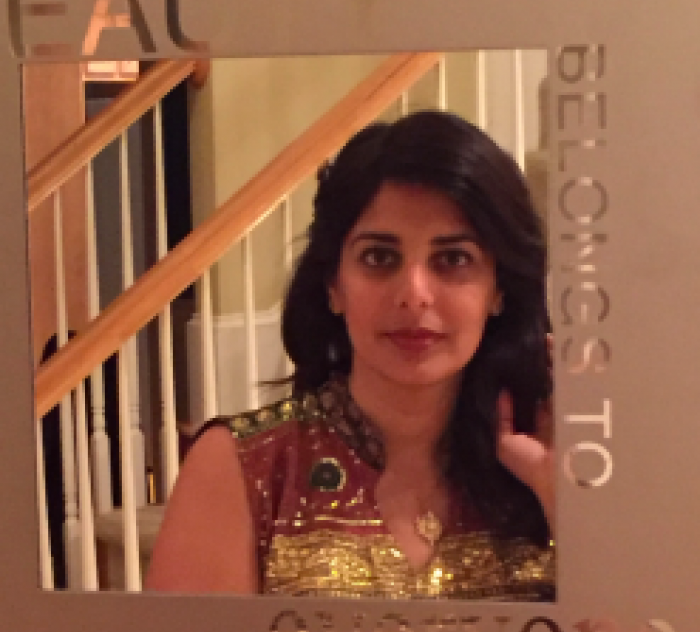I stand in front of the bathroom mirror and wonder what happened—how did I age so fast?
I can’t even remember the last time a guy looked at me or showed the slightest interest in talking to me. This is not how life used to be. I used to be able to turn a few heads, and every now and then some guy would flirt with me. Over the years, the attention slowly slipped away. Why did it matter, I asked myself?
My self-esteem is not linked to that shallow level of attention, surely. I’m a confident person, and I know what I can deliver. Yet, it bothered me. Worse, I consider myself a feminist. It made no sense that my self-worth somehow was entangled with this superficial male attention.
I had never viewed myself as a girly girl growing up. My mother and sister were completely devoid of fashion in their lives. “Comfort over fashion,” my mom always said. That meant she never wore heels or jewelry. She owned one party purse and one work purse, a handful of footwear—ranging from the basic flip flop to sneakers and sandals. Everything was on a rotation and it never bothered her what others thought of her. In her own way and in her time, she was the ultimate feminist—rejecting the societal pressure of being feminine.
Although I wasn’t like my mom, I was still a far cry from being fashionable. As I grew up, my identity was not derived from shopping or caring about what others thought of me. When social media came about, I was shockingly comfortable with being photographed in the same outfits, but that didn’t mean I wasn’t noticed.
On the contrary, it was this attention—despite my lack of effort to attract the opposite sex—that was a continuous stream of reminders that I was still attractive. Those days have passed.
How nice it would be to have some of that attention; some guy to ask me questions or show an interest in my mundane existence. Better yet, someone to tell me I’m still beautiful.
It’s confusing because I have never needed anyone to reassure me about my value or looks. Now that the external validation is dwindling, I realize that, subconsciously perhaps, I relied on it. I still believe in all my feminist values, but can’t quite come to terms with the discrepancy here.
Maybe this kind of phenomenon exists. Movie stars who fall out of relevance or rock stars who lose their charm with age may succumb to depression or drugs. The cases of overdoses and suicide are numerous. What about models who have made a living on their looks? How harshly our society casts aside aging women and men.
I’m not a movie star, rock star, or model and I’m in a good marriage, yet I can’t explain the desire for someone else to make me feel desirable. It’s a real feeling I want to keep chasing. The validation itself is fleeting, so the quest seems cyclical.
Looking back, part of me is grateful for having this kind of male attention in my youth. Recovering from a broken heart, sadness, or disappointment was probably made easier by the attention of someone not too far in the distant future; a quick boost to my self-esteem. Some girls long for this attention, but the desire remains unfulfilled. I just got lucky. And now, the fallout of missing the addictive attention that I was unaware of has become real.
Perhaps it’s got to do with the conditioning from my childhood and living in a strongly patriarchal society like Kuwait, where the approval and regard of men in my life as a girl still remains ingrained. A society where the beauty of a young teenage girl could easily be gauged by the number of boys that made lewd remarks as you walked by, or honked as they drove by, or even worse—followed you around.
As I grew older, this life became the norm. I didn’t hide or feel I needed to make myself invisible anymore, as the younger version of me did. Most of the time, I just became oblivious to it. I accepted it and learned to manage the attention, knowing it was impossible to escape. I never viewed it as harassment back then. This was everyday life in Kuwait for many girls. The ability to see it for what it was—harassment—was an awareness I gained after living in America for a while.
I also belong to a generation of women who grew up with Disney princesses waiting to be rescued by prince charming. God only knows how many times I have watched “Sleeping Beauty”; how wrongly I have internalized the message. It wasn’t Disney alone that had this impact, Bollywood movies probably made a bigger mark. They constantly reaffirmed the idea that your sex appeal to men is what validates you as a woman. As a feminist adult, I reject all these notions, but the conditioning is deep-seated.
Without a man’s gaze, I no longer feel attractive.
Patriarchy won’t die on its own. Changing society is a slow process. So, I begin with myself. Just when I thought I had spent years fixing myself, along comes another issue that needs to be researched, understood, and then taken into everyday practice. I’ll add this to the list of things I’m working on (including deep breathing) because we all remain a work in progress.
On my unlovable days, I try to shift away from the focus from my aging body to understanding the societal structures that continue to destine me for failure. I can preach to myself about self-love, but the reassurance I was taught to need has a strong grip.
My journey of being a feminist is largely internal—deconstructing the patriarchal impositions that are ingrained in me.
If I don’t forgive myself for the days I slip up, then I’m not on a journey. I am expecting myself to have arrived at the destination. I will continue to reaffirm myself as a complex and worthy human being, more than just my looks and intelligence.
My legacy is to raise my son to be a feminist so he notices the toxic masculinity already appearing in his adolescent male friends and rejects these notions. I hope his journey of self-discovery is less brutal, and I hope he will continue to be shocked when he hears of injustices against women, and in time, learn to take action.
For now, both he and I will continue to take deep breaths to calm the f*ck down as his online Zoom class glitches again.











Read 23 comments and reply